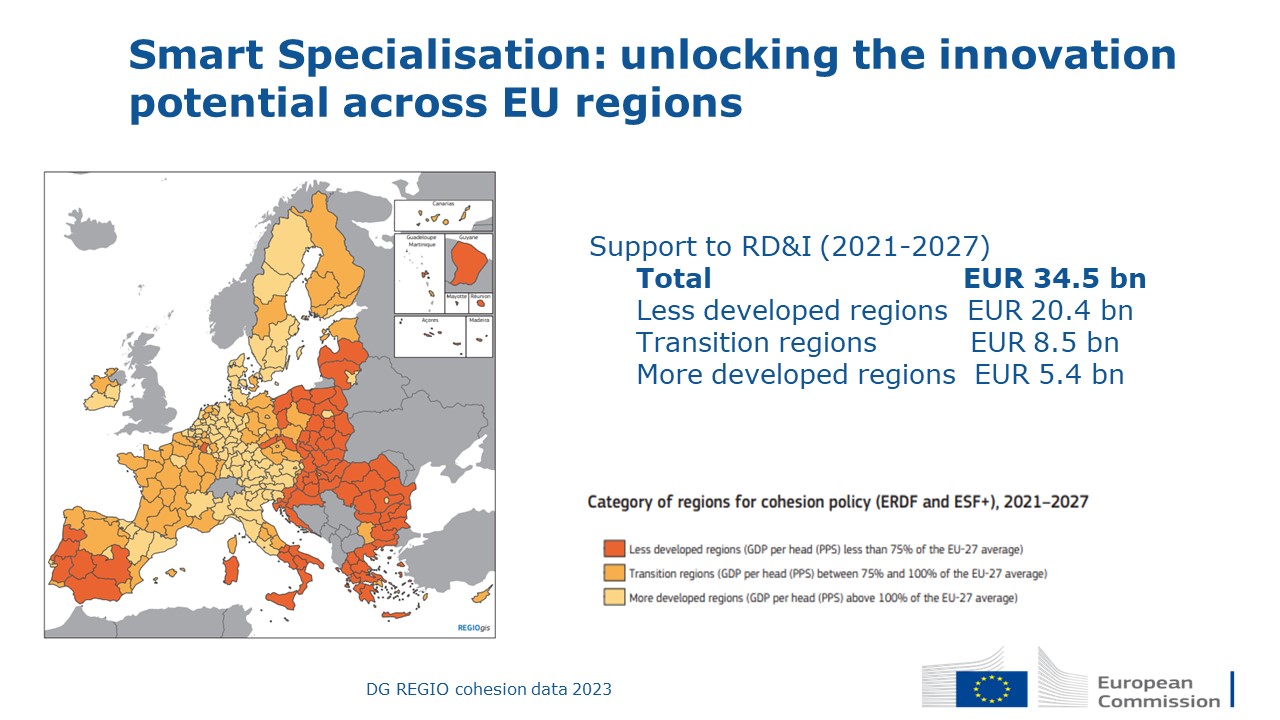The EU-Japan Region-to-Region Innovation Cooperation Program’s webinar on Smart Specialization Strategy for Startups and Open Innovation held on April 26 from 9:00-10:30 CEST aimed to serve as a platform for EU regions and Japanese prefectures to exchange information and best practices on how innovation creation is developing through supporting startups and the promotion of open innovation in line with the EU smart specialization strategy.
The topic of the event was held in the framework of the rapid progress and diffusion of IT and digital technology where start-ups are expanding globally and the importance of open innovation is emerging, thus stimulating the flow of technologies, ideas and other inputs and outputs within and beyond an organization.
The webinar was opened by Jean-Eric Paquet, Head of the EU Delegation to Japan. His speech focused on the importance of Innovation Policies as a relevant effort for the future of our society. His speech was followed by Wolfgang Münch, Deputy Head of Unit of Smart and Sustainable Growth, DG REGIO who revealed the importance of Smart Specialization Strategy in generating synergy between the more and less developed EU regions. He also highlighted the relevance of S3-based cohesion policy tools for research and innovation.
European Regional perspectives and experiences in S3 and open innovation were shared by keynote speakers from the Government of Catalonia (Laia Arnal, Director General of Knowledge Society, Transfer and Territory) and the Basque Country (Leyre Madariaga, Director of Digital Transformation and Entrepreneurship of the Economic Development, Sustainability and Environment Department, Basque Government). In this sense, the participants had the chance to learn from the Catalonian and Basque Country strategic areas for the 2021-2027 programming period, the different instruments of open innovation and regional policy makers’ commitment to support the entrepreneurship.
Likewise, experiences from other EU regions (Ljubljana, Emilia-Romagna, Val d’Oise and Auvergne-Rhône-Alpes) on their regional innovation policy strategies and practices for start-ups and promotion of open innovation were shared.
In the end, the Japanese Prefectures showed interest in the topic through several questions related to what kind of regional startups already exist, what are the efforts made to support startup cooperation, and strengthen cooperation between SMEs to open innovation. Also, the implications of startups and open innovations for the key industries that already exist in the region were also a matter of interest for the Japanese Prefectures among others.
